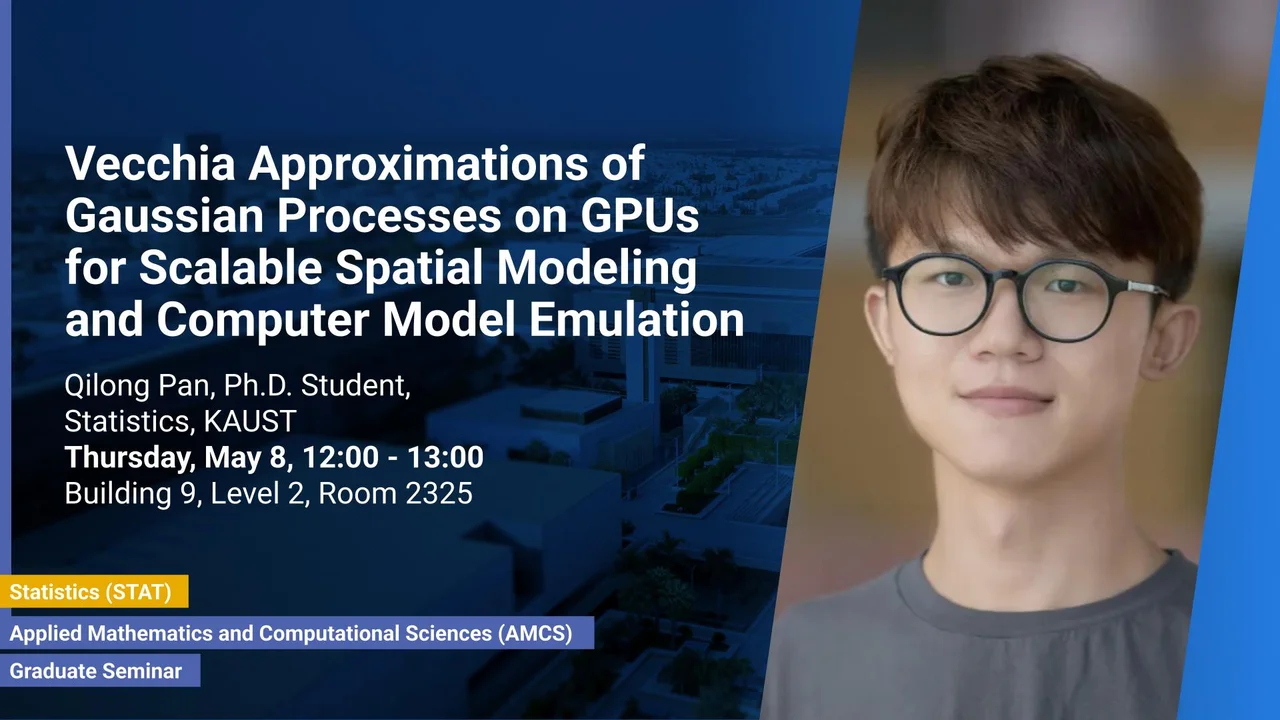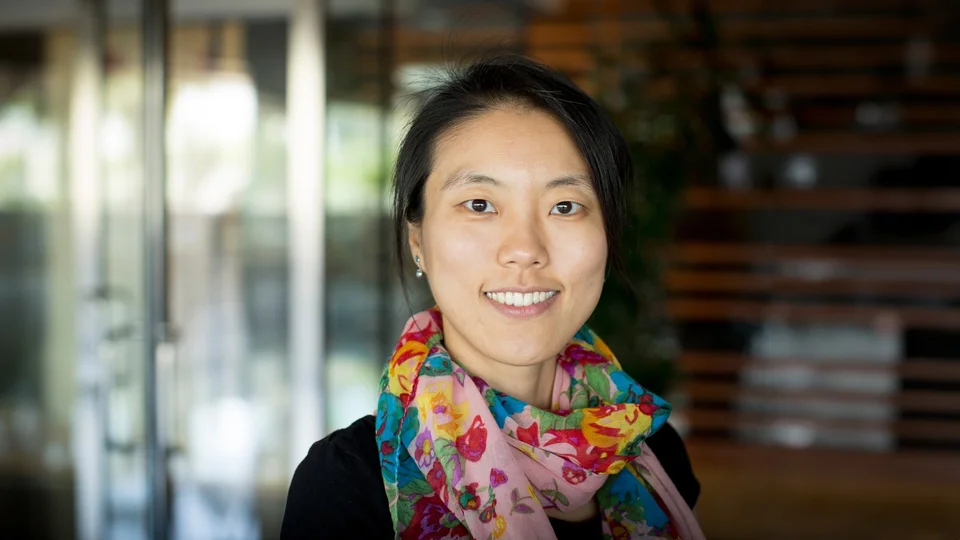
Vecchia Approximations of Gaussian Processes on GPUs for Scalable Spatial Modeling and Computer Model Emulation
This seminar introduces GPU-accelerated Vecchia approximations to overcome Gaussian Process computational limits, enabling scalable applications for large geospatial datasets and high-dimensional computer model emulations.
Overview
Gaussian Processes (GPs) are a flexible and powerful tool for spatial modeling and computer model emulation, but their widespread use is limited by cubic time and quadratic memory complexity. This talk presents three recently developed GPU-accelerated Vecchia approximations to enable scalable GP applications to large geospatial datasets and high-dimensional computer model emulations.
Vecchia's methods approximate the joint Gaussian likelihood by the product of lower-dimensional conditional densities. We begin with a GPU-accelerated implementation of the classical Vecchia approximation where the conditional densities are univariate, using batched matrix operations. It enables efficient inference for up to one million spatial locations on a single GPU. Building on this, the proposed Block Vecchia Approximation groups input locations via the K-means clustering and forms multivariate conditionals, improving both accuracy and scalability. To address challenges in high-dimensional settings, we further develop the Scaled Block Vecchia Approximation, a distributed multi-GPU method that integrates MPI and GPU batched computation to support hundreds of millions of data points.
The talk will highlight methodological innovations, computational strategies, and results on real-world data, demonstrating the versatility and scalability of the proposed approach.
Presenters
Brief Biography
Qilong Pan is a Ph.D. candidate in Statistics at KAUST, supervised by Prof. Ying Sun. His research focuses on scalable Gaussian Process modeling, high-performance statistical computing, and GPU-accelerated inference for large-scale spatial and computer experiment data.

